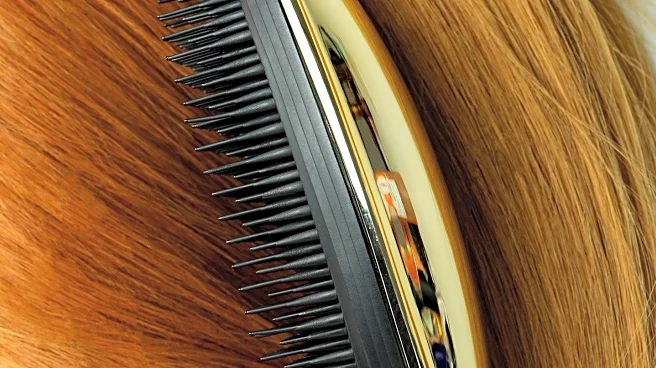What's Happening?
LinusBio has announced a breakthrough study published in The Lancet's eBioMedicine, demonstrating the potential for a noninvasive, hair-based biomarker for amyotrophic lateral sclerosis (ALS). The study reveals that elemental patterns in single strands of hair, particularly copper-related relationships, differ consistently between ALS patients and controls. This discovery could provide drug developers with an objective measure for clinical trials, aiding in the development of targeted therapies. ALS, affecting approximately 30,000 Americans annually, lacks reliable biomarkers, making symptom-based scales the primary method for assessing therapeutic impact.
Why It's Important?
The development of a hair-based biomarker for ALS represents a significant advancement in the field, offering a noninvasive and objective tool for diagnosis and therapy development. This could accelerate clinical trials, improve patient stratification, and reduce diagnostic delays, ultimately enhancing treatment options and outcomes for ALS patients. The study's findings may also open new avenues for research and drug development in neurodegenerative diseases.
What's Next?
LinusBio plans to publish additional research by the end of the year, further advancing the development of the hair-based biomarker. The company aims to validate the biomarker for clinical use, potentially transforming the landscape of ALS therapy development and improving the diagnostic journey for patients.
Beyond the Headlines
The study highlights the potential of exposomic sequencing in precision health and the importance of innovative approaches in addressing unmet needs in neurodegenerative diseases. It underscores the role of interdisciplinary collaboration in advancing scientific discoveries.










